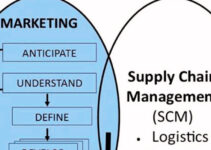Freight forwarders offer logistical and transportation services to businesses and companies. They have the obligation of dealing with the transportation of products and goods from one point to another along with performing the documentation and paperwork required by the customs department. Today, we’ll discuss the top 10 challenges faced by freight forwarders.
Top 10 Challenges Faced by Freight Forwarders
Let’s discuss the top 10 challenges faced by freight forwarders and they’re as follows;
Global Economy
The global economy is transforming at a very speedy and quick pace. It requires freight forwarders to take precautionary measures to deal with environmental issues; trade wars, shipping costs, increasing shipping costs, and high inflation. It is significant to ensure the reliability and dependency of the SC network and processes; even in uncertain conditions and circumstances. The shipping companies and freight forwarders should keep looking ahead to deal with various types of potential issues.
Government Regulations
When the shipment or the moving cargo is crossing the border between two or more counties; then it has to comply with the local and international laws, regulations, fees, and duties. You can’t be sure about shipment processing methods and procedures. It is possible that you aren’t familiar with the existing or prevailing shipment methods and procedures.
Launching Technology
The implementation of tech tools and equipment in the logistical industry is changing at a very speedy rate. The speedy technology changing rate in the shipment industry would it difficult for the logistical companies to follow the standardized methods and practices of logistics.
However, freight forwarders should consider employing tracking tools and equipment; optimization, and updated communication tools to deal with the moving cargo and shipment across the world. Some of the prevailing issues that logistical companies should address are as follows;
- Supply chain visibility and transparency
- Advanced tracking system
- Electric vehicles toward green energy
Limited Drivers & Retention Issues
The operations of freight forwarders are highly dependent on the trucking industry for the flow of cargo and shipment across regions and countries. The trend of drayage shipment has decreased the need for truck drivers and people stopped coming into this field; it resulted in the form of shortage of truck drivers.
It is significant to know that many truck drivers have been working in the trucking industry for a very long time. They have reached the stage of retirement age and they can’t continue their jobs. Therefore, trucking companies should attract former military personnel, young men, and women in order to deal with the shortage of truck drivers.
Custom services
It is necessary for shipment and logistical companies to develop partnerships and alliances with global shipping companies for the flow of shipment and cargo. It doesn’t always lead toward optimum customer service for the shippers and logistical companies, many small details are omitted in translation while dealing with foreign shippers.
Freight forwarders should make sure that their shipping partners share the right information timely for great customer service. The definition and meaning of excellent customer service is different for various companies. The shipping companies are always implementing the best practices, and the customers want openness and transparency from them.
Environmental Challenges
The logistical and shipping industry deals with various types of natural and environmental issues and challenges like; oil spills, carbon emissions, and jeopardizing wildlife and sea life. Many transportation vehicles are burning fuel and diesel and emitting injurious chemicals into the atmosphere.
Collectively, the impact of the shipping industry on environmental pollution is astronomical. It is a great challenge for shipping companies and freight forwarders to maintain a balance between lower environmental pollution and affordable shipment.
High Fuel Price
The increasing fuel cost poses a great challenge for the shipping industry. The damaged shipment allows you to optimize transportation methods and decrease the fuel cost. Streamlining various processes and operations and finding the new optimized route would help you to decrease the fuel cost. The shipping industry should find an alternative source of energy like hydrogen-powered or electric-powered vehicles.
High Competition
The shipping industry has become highly competitive in recent years and there are various freight forwarders offering similar types of services. Many shippers want brand loyalty, better prices, speedy delivery, and safety while forwarding their freight. According to an estimate, approximately 46% of the freight forwarders would stop working for the specific freight forwarder due to the fact that they receive a better offer.
Consumer Expectations
The increasing trend of online shopping and usage of e-commerce has accustomed people to quick delivery systems, real-time tracking, and regular updates. Consumer expectations have increased significantly and they want the freight forwarders to offer the optimum level of service.
Limited Containers
Securing the shipping space was a serious challenge in 2020 because the shipping vessels were very low. It has amplified the transit and dwell time and as a result the containers were taking a lot of time for the single delivery of container. The consumer demand was high, and the supply of shipping capacity was very low.
Conclusion: Challenges Faced by Freight Forwarders – Top 10
After an in-depth study of the top 10 challenges faced by freight forwarders; we have realized that freight forwarders play a key role in the shipping industry. If you are learning about the challenges to freight forwards, then you should keep in mind the abovementioned issues and challenges.
Ahsan is an accomplished researcher and has a deep insight in worldly life affairs. He goes Live 3 days a week on various social media platforms. Other than research writing, he’s a very interesting person.


